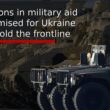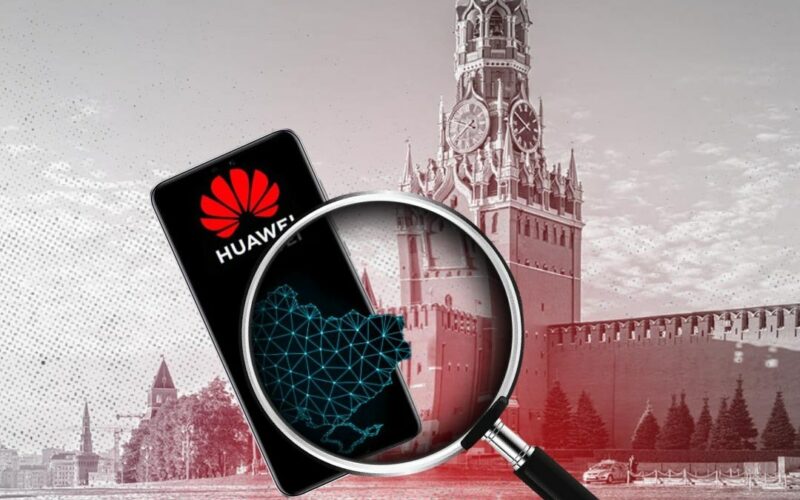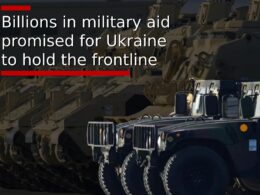As Russia’s full-scale aggression against Ukraine began, the entire democratic world took Ukraine’s side, condemning the Russian invaders’ actions and providing military and financial assistance to Ukraine. In particular, there were countries and dictatorships that supported Russia: North Korea, Syria, Lukashenko’s regime, and so on. In some way, these regimes assisted Russia in its war of aggression.
But there were still third-party countries that officially declared their neutrality in the Russia-Ukraine war and limited themselves to general statements like “for all good, against all bad.” Often, these countries unofficially supported Moscow. For example, take Iran or China.
Officially, the position of these countries was to respect the territorial integrity of Ukraine, but in reality, they continued active cooperation with the Putin regime. It also applied to military manufacturing. Russia received attack drones from Iran, and Russian troops used them to bombard Ukrainian cities. The North Korean regime supplied Russia with ballistic missiles. Many countries allowed Russians to import dual-use components for war drone production, evading sanctions.
China is also not far behind Iran. And although Beijing did not send ammunition, weapons, and equipment to Russia, it does help Russia in other ways, such as components for UAVs, advanced electronics, armored vehicles, and so on. China is the biggest supplier of electronics to Russia, according to reports.
In particular, the Chinese company Huawei is currently almost the largest direct supplier of microcircuits and other components to Russia. Chinese components are found in Russian missiles, the electronics of downed enemy equipment, drones, etc.
Russian missiles and other weapons undoubtedly contain Western electronics. However, Russia acquires these Western electronics through gasket companies and friendly third nations. This situation, however requires more effective work on secondary sanctions to make it impossible, or practically impossible, for Western technologies and components to enter Russia circumventing Western sanctions.
Huawei, on the other hand, sells electronics directly to Russia, which significantly stabilizes its military industry and, in particular, the production of missiles and drones.
In general, the Huawei company has repeatedly fallen into various scandals. So, in 2019, the US accused a Chinese company of espionage. In particular, the US Ministry of Justice noted that the company engaged in industrial espionage on US soil and committed fraud in an attempt to circumvent sanctions against Iran. Matthew Whitaker, acting US Attorney General at the time, said so.
After that, Huawei came under US sanctions. Under the current US president, J. Biden, the USA has already introduced new restrictions against Huawei. For example, the Biden administration stopped granting export licenses to American companies for this Chinese company.
In 2022, the US launched an investigation into Huawei over concerns that the company’s equipment could intercept and transmit private information from military bases to China. In April 2021, the US Department of Commerce subpoenaed Huawei to learn about the company’s policy on sharing data that its equipment can receive from mobile phones with foreign parties. In particular, it was about messages and geolocation data.In addition to the United States, other Western countries have taken appropriate steps against the Chinese company Huawei.
Yes, the UK is going to abandon Huawei equipment in 5G networks by 2027 and has limited cooperation with it. The Lithuanian Ministry of Defense recommended avoiding Chinese mobile smartphones, particularly Huawei, and getting rid of those purchased earlier due to built-in censorship and security vulnerabilities. Germany and other European countries are reportedly considering introducing restrictions against the scandalous Chinese company.
So, as we can see, Huawei has a really scandalous reputation, which, in the context of Russian aggression, adds special sharpness to this topic. Despite all these scandals, the Ukrainian branch of Huawei cooperates with a number of Ukrainian universities and organizations, including state ones, providing them with various equipment. This list also includes the State Intelligence Service, which is absurd in itself.
Taking into account the above facts about Huawei’s possible espionage, its connections with Chinese special services, and its cooperation with Russia, the activities of this company in Ukraine and Europe are cause for concern.In addition, there are questions regarding the Huawei-Ukraine team. Open sources reveal that a potential Russian collaborator involved in information operations against Ukraine holds a managerial role at Huawei-Ukraine’s Kyiv office.
This is Elena Dyachenko, who before the war was a Russian propagandist and appeared regularly on the TV channels owned by Putin’s close ally Viktor Medvedchuk (implicated in the “Voice of Europe” scandal and sanctioned by Czechia), where she spread typical Russian fake stories about a “civil war in Donbas,” “Maidan as a coup d’état,” and the denial of Russian war aggression, etc. It is not difficult to find her quotes on the Internet, and they provide an opportunity to convince yourself that the top manager of Huawei Ukraine is a pro-Russian propagandist with an openly expressed hatred of everything Ukrainian.
Why and how Elena Dyachenko ended up at Huawei Ukraine is unknown. The company ignores any contacts with the media, which tried to find out Huawei-Ukraine’s official position regarding the presence of odious anti-Ukrainian figures in its team.
But all of these circumstances, as well as Huawei’s dubious reputation, lead to only one opinion: the Chinese company deliberately takes care of anti-Ukrainian propagandists. If you dig deeper, it may turn out that anti-Ukrainian propagandists appeared in Ukraine, not by chance. Why has law enforcement not yet contacted this company?








